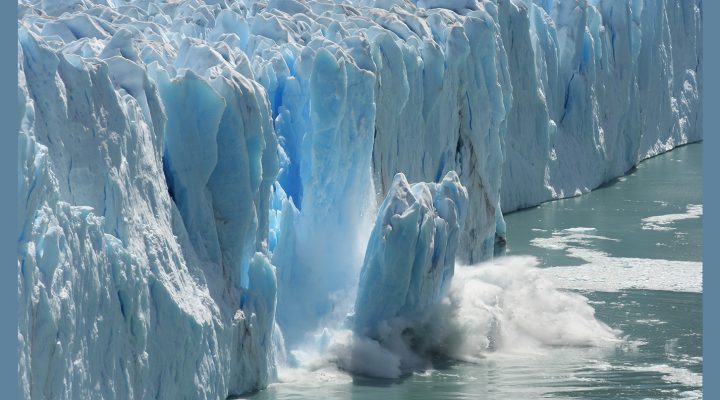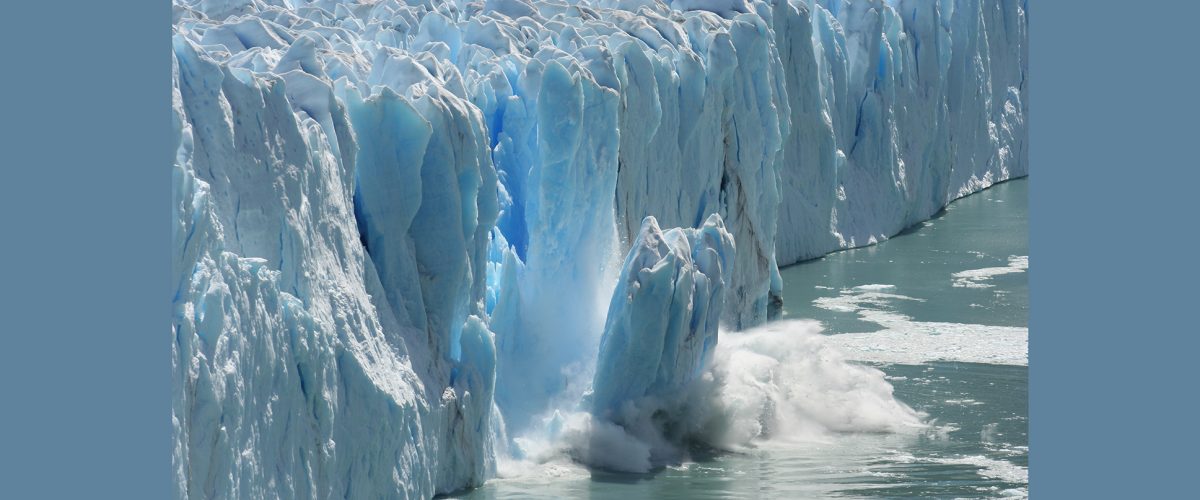A newly released report on faith and the environment comes from an unlikely source — the National Association of Evangelicals.
While many evangelical Christians are known as deniers of climate change science and boosters of fossil-fuel energy — a known contributor to global warming — there is another group of evangelicals who believe action is required.
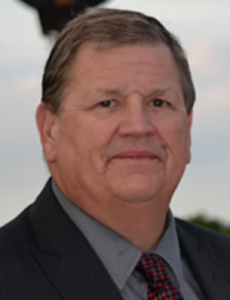
Mitch Hescox
Christians should care for the planet as a way of caring for and ministering to its inhabitants suffering from the effects of climate change, said Mitch Hescox, president of the Evangelical Environmental Network. He spoke Aug. 29 at the release of a new report by the NAE titled “Loving the Least of These: Addressing a Changing Environment.”
“Caring for God’s creation, and climate change in particular, is not a matter of caring for the earth,” he said. “It’s a matter of caring for people, because eventually the earth will take care of itself.
“The ones we need to care about are the least of these, the ones most unable to help themselves,” said Hescox, a contributor to the 95-page report that makes a biblical case for engagement in creation care by connecting the science of climate change with its impact on the poor.
The project leans heavily into Jewish and Christian Scriptures, including those requiring human stewardship over creation and Jesus’ injunction that believers love their neighbors — including those suffering the effects of ecological calamity — as themselves.
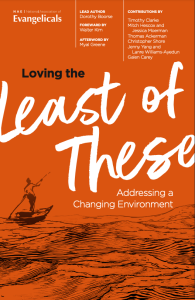 “Evangelicals look to the Bible for guidance in all areas of life. What can the Bible say to us in this world where pollution, heat waves, floods and droughts are frequent?” the report asks. “The Bible does not tell us anything directly about how to evaluate scientific reports or how to respond to a changing environment, but it does give several helpful principles: Care for creation, love our neighbors and witness to the world.”
“Evangelicals look to the Bible for guidance in all areas of life. What can the Bible say to us in this world where pollution, heat waves, floods and droughts are frequent?” the report asks. “The Bible does not tell us anything directly about how to evaluate scientific reports or how to respond to a changing environment, but it does give several helpful principles: Care for creation, love our neighbors and witness to the world.”
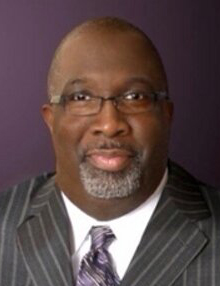
Timothy Clarke
Caring for creation and for neighbors demands Christians elevate their concern and action around ecological challenges, said Bishop Timothy Clarke, senior pastor at First Church of God in Columbus, Ohio, and a contributor to the NAE report. “As a pastor, as a practitioner and as one who seeks to live out my faith, I believe the biblical mandate for the stewardship of the earth is one of our primary responsibilities.”
Clarke said his understanding of the relationship between faith and creation is summed up in Reclaiming Stolen Earth: An African Ecotheology, a book by Jawanza Eric Clark due for release in December: “He argues that our theology has to impact our ecology, that we cannot divorce what we believe about God from what we believe about this marvelous place we call earth.”
“When you throw trash on the street, on the sidewalk, you are literally littering God’s living room.”
Passages in Genesis and the Psalms call humankind to be caretakers of the planet, not polluters, he added. “I often remind people who I see littering that when you throw trash on the street, on the sidewalk, you are literally littering God’s living room. It’s as if you walked into God’s house and dumped garbage in his kitchen or his living room or his bedroom.”
The consequences of greenhouse gasses and other forms of pollution extend far beyond what most people think, the report says. “The effects of a changing climate on human health are widespread. They include an increase in food-borne illness such as salmonella, an increase in tropical diseases, malnutrition from crop failures, cardiorespiratory distress from heat combined with airborne pollution in cities, extreme heat waves, wildfires and other health-related problems.”
A study of 16 low-income countries concluded that those living in poverty are more vulnerable to climate change effects “because they have no buffer to help them deal with crop failures or other sudden changes. Similarly, they are less likely to have flood or other disaster insurance or to be able to manage in the case of disasters,” according to the NAE report.

Lanre Williams-Ayedun
Displacement is another poverty-deepening repercussion of global climate change, said report contributor Lanre Williams-Ayedun, senior vice president for international programs at World Relief.
She cited a U.N. report that “20 million people are displaced due to climate events every year — 20 million people that are having to move from their homes … to have a chance at a livelihood and health.”
Webinar participants urged Christians to educate themselves about ongoing ecological catastrophes and to pray and seek ways to actively help those trying to survive them.
“If we don’t feel the effects of climate change as dramatically as our sisters and brothers in other parts of the world, we don’t realize sometimes that we are sharing one planet,” World Relief President Myal Green said. “It is so crucial that we acknowledge that our actions have an effect on the lives of other people.”
Greene suggested church leaders consider the “one body” passage in First Corinthians to generate compassion for those afflicted by the different facets of climate change.
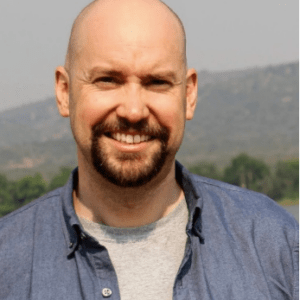
Myal Greene
“As faith leaders in the U.S., we need to be aware of how other parts of the body are suffering the effects of climate change and we need to understand our actions in doing that,” he said. “None of us is exempt from answering Jesus’ call to love the least of these. And one of the best ways we can do that is to be both reactive and proactive.”
Alluding to divisiveness surrounding the topic of climate change, NAE President Walter Kim said the report was not motivated by partisanship.
“Our concerns and motivations are not political. They are deeply rooted in the biblical conviction about God as Creator of this universe and humanity’s responsibilities to care for the gift of this creation,” he said. “As followers of Jesus, we certainly are committed to God’s glory that’s revealed in creation and the stewardship that would be our responsibility in caring for God’s artistry.”
Related articles:
Christians and climate change: A chance to take the Bible seriously | Analysis by Chris Conley
The fantastical world of climate change denial: Slouching toward annihilation | Opinion by Rodney Kennedy
On climate change, the political divide has widened as more Americans overall express concern

